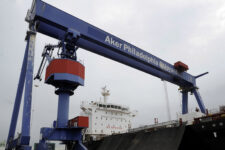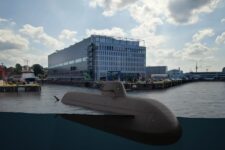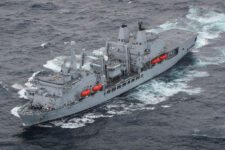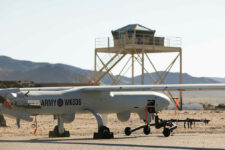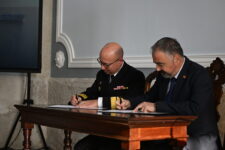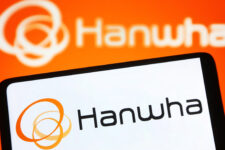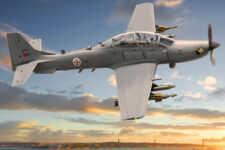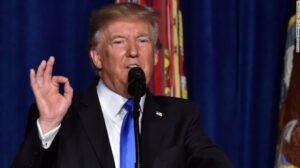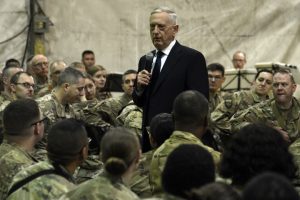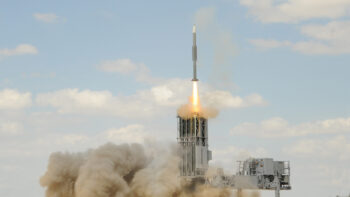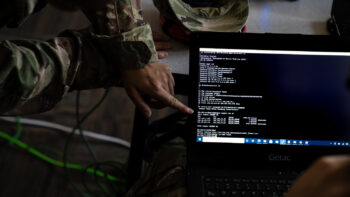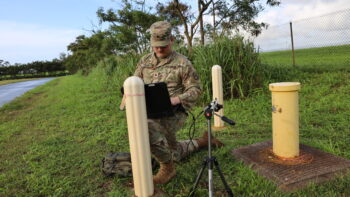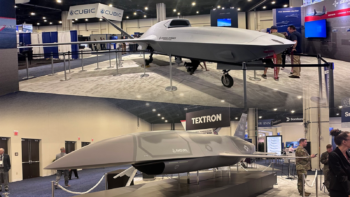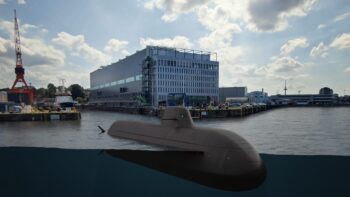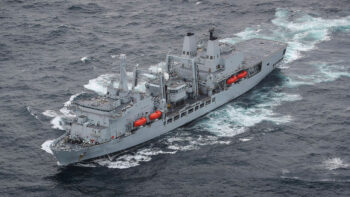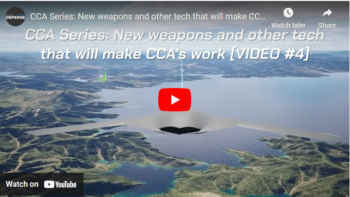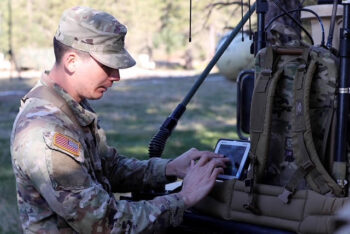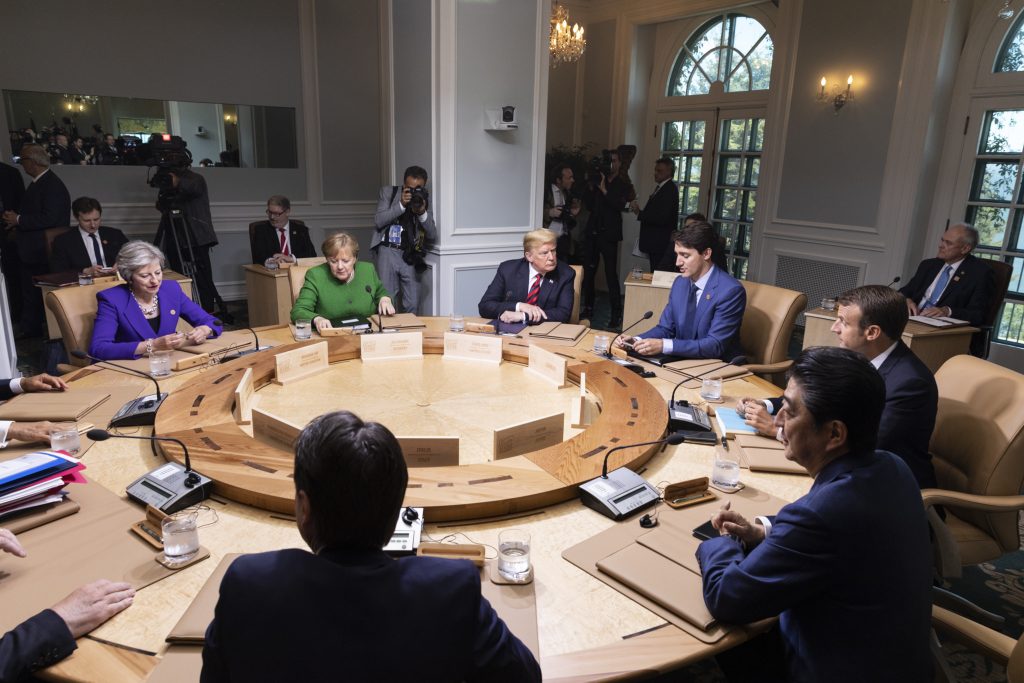
WASHINGTON The next two weeks will be a heady time for the NATO alliance, as President Donald Trump lands on the continent to attend the annual NATO summit in Brussels, take a pit stop in London, and hold a controversial one-on-one meeting with Russian President Vladimir Putin in Helsinki.
Spanning both events is the biannual Farnborough air show in the U.K., where defense companies and allied nations toggle between the welcome news of increased European defense spending and deeper cooperation against the Russian threat, and the conflicting messages sent from Washington over its commitments to NATO allies and existing trade agreements.
Much, of course, depends on the president’s mood, which is rarely good during international conferences where he bristles at what he considers the unfair economic and security alliances the United States constructed in the wake of WWII and the Cold War. Last month, a dour Trump stomped through the G7 summit in Canada, suggesting Russia be readmitted to the elite economic group, despite having been expelled for invading neighboring Ukraine and annexing Crimea. Trump also rejected the joint communique signed by leaders at the conclusion of the meeting, launching personal attacks against Canadian Prime Minister Justin Trudeau in the process.
But administration officials on Thursday sought to provide a sunnier outlook for the president’s NATO meetings, while staying away from specifics in portraying an air of normalcy when discussing the president’s trip to Belgium, London, and Helsinki.
Given the president’s reported desire to explore pulling U.S. troops from Germany, one administration official said “there is nothing being said at all about the troop alignment in Germany or anything that would change the 32,00 troop force we have in Germany. It’s very important that we have to capability to stage and train our troops there.”
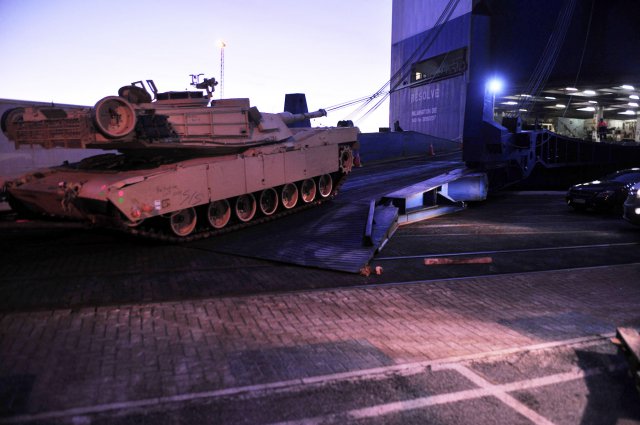
An M1 tank of 3rd Armored Brigade Combat Team, 4th Infantry Division, unloads in Bremerhaven, Germany.
Separately, U.S. Representative to NATO Kay Bailey Hutchison told reporters Thursday that the alliance is moving forward together, and “everyone has the same goal, and that is a strong deterrent and an alliance that is unified” against threats like Russia and China.
Fifteen members of NATO are on track to meet the pledge to spend two percent of their GDP on defense by 2024, and “every one of our allies — 100 percent — are increasing defense spending, so that’s something we will talk about as an achievement, but we have to do more,” she added.
Her comments come just weeks after Trump charged that America is “the piggy bank that (NATO) likes to take from,” and “we like to help out, but it helps them, they’re in Europe. It helps them a lot more than it helps us, we’re very far away.”
Last month, Trump and Defense Secretary James Mattis sent letters to the leaders of Norway, the U.K., Belgium, Canada and other allies demanding that they boost defense spending.
Likewise, the Helsinki summit with Putin will include a one-on-one meeting on Monday July 16, followed by larger meeting with staffs, and then a working lunch between the two sides. One official who asked to speak on the condition of anonymity said “we’re entering with our eyes wide open” but “the ball really is in Russia’s court” when it comes to changing their behavior.
The official, speaking on a call with reporters, portrayed the Helsinki meeting — which comes just four days after NATO — as one in a long line of outreach opportunities American presidents have undertaken: “In the end, I think it’s fair to say since the end of the Cold War each president has tried a reset of the relationship, but it has led to a boom and bust cycle” that has left the relationship in worse shape each time.
But Trump’s refusal to accept the findings of the entire U.S. intelligence community that Russia interfered with the 2016 presidential election, and his reported suggestion that Crimea was actually part of Russia, makes allies uncertain over what the meeting will produce
White House officials are treading lightly, uncertain over what Trump will say or do during the meeting. “The president will drive the discussion on malign activity, he knows the details,” the official said. “We’ve all talked about it, and the president has talked about it in his own way.”
Israel signs $583 million deal to sell Barak air defense to Slovakia
The agreement marks the latest air defense export by Israel to Europe, despite its ongoing war in Gaza.



